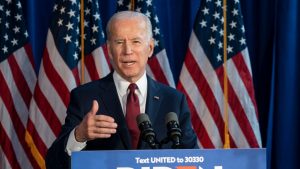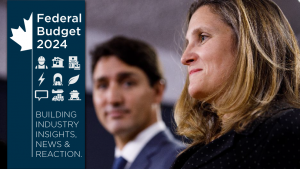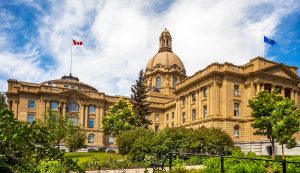Unions and labour advocates in Alberta plan to challenge the constitutionality of changes to labour laws laid out in Bill 32.
“Bill 32 is a blatant attack on workers’ constitutional rights. There is absolutely no way we will comply with it,” said Jerry Dias, Unifor National president. “(Alberta Premier) Jason Kenny is turning back the clock on workers’ rights to benefit his wealthiest corporate donors.”
Unifor is Canada’s largest union in the private sector, representing 315,000 workers in every major area of the economy.
In a press release, Unifor called the bill, also known as the Restoring Balance in Alberta’s Workplaces Act, an attempt limit workers’ collective voices while letting corporate influence continue unfettered.
“I’ve heard from Unifor members across the province, from the oilsands to education workers in Calgary, and we are united to defend workers’ rights,” said Gavin McGarrigle, Unifor western regional director, in the press release.
The bill was introduced in early July and states, among various changes, that pickets would not be allowed to interfere with anyone coming or going across a picket line, and secondary pickets at locations other than at the direct employer involved would need the OK from Alberta’s Labour Relations Board. It also looks to implement changes to workplace rules and union activities, including allowing union members to opt out of having their union dues go to political parties or causes.
Unifor representatives said they will be working with the Alberta Federation of Labour (AFL) on a legal challenge to Bill 32.
Gil McGowan, AFL president, said the federation is organizing a coalition of Alberta unions to fight the changes in court.
“This Bill moves Alberta far outside the Canadian mainstream when it comes to rights and protections for workers,” said McGowan in a press release. “It tips the balance of power outrageously in favour of employers, both in the workplace and on the political stage. And it actively attacks democratic rights guaranteed by the Canadian constitution. This law will make Alberta look more like Mississippi or Alabama than a Canadian province; and we will not allow it to stand.”
The AFL listed some of the changes to the bill they found to be most concerning as follows:
- Changes to the Employment Standards Code that could give employers the ability to get around requirements to pay time-and-half for overtime.
- Changes to the code that could make it easier for individual employers, groups of employers or even whole economic sectors to be granted exemptions or variances from the rules and protections outlined in the code.
- Requirements for unions to separate spending meant for organizing, education, lobbying, public and political advocacy, work with allies, support for charities. They must then get permission from individual members before these funds can be spent.
- Changes to make member votes on political spending public.
- A new section that would give the provincial cabinet the power to set the “time and frequency” when unions can make changes to their dues and suggests that the government can also set the amount as well.
The AFL noted all of the 25 public and private sector unions affiliated with the federation are committed to challenging the constitutionality of Bill 32 in the courts.
However, other groups, like the Progressive Contractors Association of Canada (PCA) called the changes in the bill long overdue.
One of most significant changes is that all-employee bargaining units are now cemented into law.
Paul de Jong, PCA president, noted to the Journal of Commerce this is something the group has endorsed since its inception 20 years ago.
“This needed to be modernized,” said de Jong. “These labour laws were created decades ago on the assumption that labour was organized by craft union affiliation and bargaining units were siloed or carved up based on those. But that is not the way most collective bargaining units are structured across North America.”
De Jong also praised changes to political contributions from unions.
“Unions have a very special characterization in the Charter of Rights and Freedoms,” said de Jong. “To use those required dues politically becomes distorting. In that context, the union is picking winners and losers and they were never given that mandate by the workforce. We think that this is an important part of preserving democracy.”
— With files from The Canadian Press
Follow the author on Twitter @RussellReports.











Recent Comments
comments for this post are closed